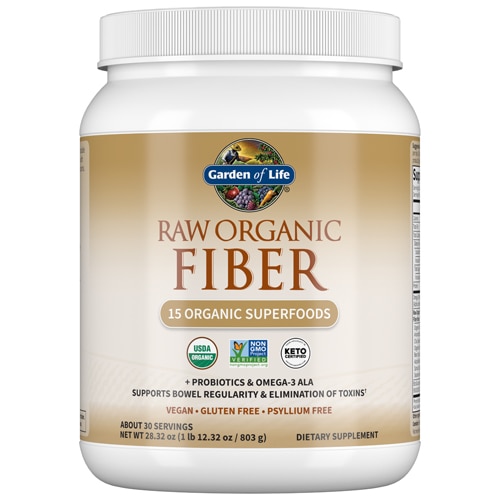Just about everyone’s heard of the gluten-free diet. In fact, not only have we heard about it, we can now pop into any grocery store or even roadside gas station and find many packaged foods that fit into that category. Gluten-free muffins, breads, bagels, pastas, cereals—you name it, you can find it. Now, we’re seeing another diet trend: grain-free eating.
Who should follow a grain-free diet?
It’s not unreasonable to ask: should you only switch to a grain-free diet if you’ve been diagnosed with celiac disease? The answer is no, not by a long shot. And here’s why.
Whether or not someone chooses to eliminate gluten from their diet should not be based solely on a known diagnosis of celiac disease. Personally, when I discovered the root of my own illness was largely due to gluten consumption (I do not have celiac disease), the awareness we have now was non-existent. At that time, there was no talk of allergies, sensitivities or intolerances. But they existed!
“Non-coeliac gluten sensitivity (NCGS) describes a set of symptoms that people think is caused by gluten. Removing gluten seems to help these patients. The cause and treatment of this condition is not well understood. There are also no specific blood tests that help to diagnose this condition. This makes it frustrating for all concerned.” (1)
Why I went grain free
Here’s the good news: sometimes a medical test isn’t necessary. We can be our own detectives by eliminating gluten-containing foods and simply evaluating whether or not our symptoms improve.
When I saw a GI specialist, prior to discovering gluten’s effects in my own body, I was warned not to cut out gluten-containing foods. If I did, I was told, I would risk not being able to get enough fiber and B vitamins. According the doctor, cereal grains and breads were the best sources.
But in reality, veggies and fruits can contain seven to 11 times the amounts of those nutrients found in fortified grain-based foodstuff. (2)
After being told there was nothing physically wrong with me (and being handed a prescription for an antidepressant—not the solution for me!), I decided to dive deep into whatever clues I could find about what had been causing me years of every GI issue in the book.
When I eliminated gluten, I began to feel better in a mere three days. Yet while I was somewhat better, I still didn’t feel outstanding, and I wasn’t willing to settle for less. About a year later, I began looking into other foods that I had previously thought healthy, that may actually be making matters worse, and it was then back in 2004 that I stumbled upon something called the Paleo Diet.
While there are now many versions of this approach to eating, the nuts and bolts of it do include one other pillar: omitting all grains.
What experts say about grain-free eating
According to Dr. Loren Cordain, the founder of the Paleo movement, “Legumes and whole grains contain some of the highest concentrations of anti-nutrients in any foods. These compounds frequently increase intestinal permeability and cause a condition known as “leaky gut,” a necessary first step in almost all autoimmune diseases. Further, a leaky gut likely underlies chronic, low-grade inflammation, which underlies not only autoimmune diseases, but also heart disease and cancer.” (3)
Add to this the percentage of grains in the U.S. that are genetically modified, and the picture becomes even more grim.
Finally, by following a diet heavy on the starches coming from grains and legumes (as well as too much sugar), we don’t do ourselves any favors if we’re trying to lose weight, improve mental focus or decrease our chances of many modern day illnesses.
In a study on the Harvard School of Public Health Blog (4), a low-carb diet was most beneficial for lowering triglycerides, the main fat-carrying particle in the bloodstream, and also delivered the biggest boost in protective HDL cholesterol.
Of course, there are just as many critics as there are supporters of a grain-free approach to eating.
Should you eliminate grains?
With so many different sources of information today, it can be very easy to confuse what a healthy approach to grain-free eating is, or to know if you’re a candidate to try it in the first place.
Since we’re not a one-size fits all society, the approach I use when working with clients is to summarize all the symptoms they’re experiencing, create a plan to omit potentially allergenic and inflammatory foods for a period of time, and then (as long as they don’t have a diagnosed illness), try adding back one food at a time to see how their body reacts.
This allows each person to identify their own body’s eating blueprint, without having to pay for yet another lab test or see another doctor who may not heed what they’re saying. Another bonus is that, since we’re dealing with ‘food as medicine,’ there’s no risk of side effects that can come along with testing out supplements or medications.
So what can you do? See if a grain-free diet works for you.
- Try a few weeks of grain-free living, making sure you’re not just cutting out the grain, but that you’re adding in ample calories through a variety of healthy fats.
- Focus on including olive oil, avocados, coconut oil and properly sourced animal fats such as grass-fed tallow, duck fat and pasture fed lard.
- At the same time, notice how much fruit you’re eating (most people eat far too much ), and if you discover the portions of fruit servings each day far exceed those you’re getting from veggies, start to shift that little by little.
- Keep your protein intake moderate and be mindful about where it’s coming from; a steak from a 100% grass-fed cow is a different protein than one from an animal raised inhumanely on GMO grains and antibiotics.
By addressing this fundamental piece of our overall picture of health, we are bound to at least begin to improve how we feel on a day to day basis, all through empowering ourselves through education!
(1) http://www.coeliac.org.nz/coeliac-disease/non-coeliac-gluten-sensitivity
(2) http://www.mayoclinic.org/healthy-lifestyle/nutrition-and-healthy-eating/in-depth/high-fiber-foods/art-20050948
(3) http://thepaleodiet.com/paleo-diet-faq/
(4) https://www.hsph.harvard.edu/nutritionsource/carbohydrates/low-carbohydrate-diets/




